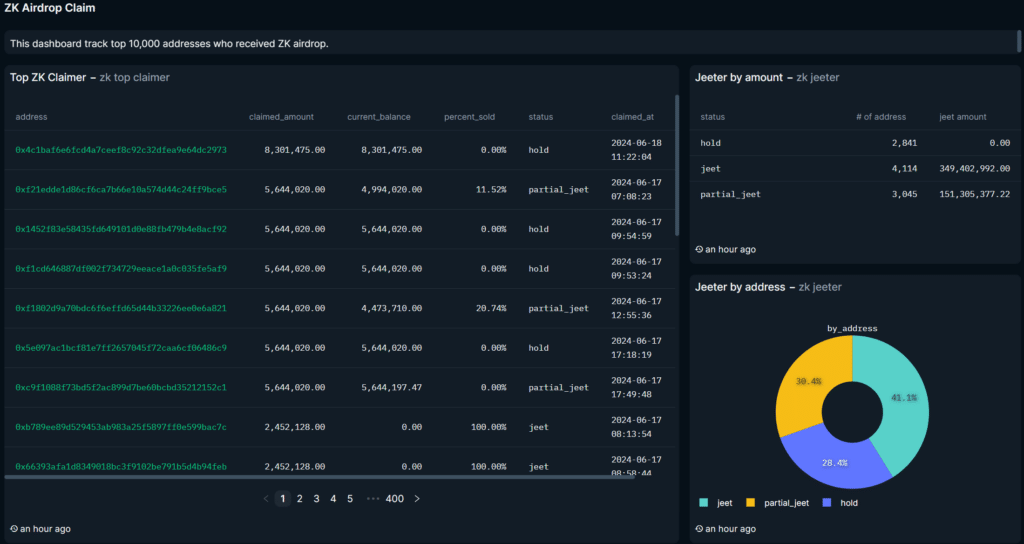Nansen: Top 41% ZKsync airdrop recipients hit sell

Nearly half of the top recipients of ZKsync’s airdrop liquidate the governance tokens on day one.
Data from Nansen shows that over 41% of 10,000 wallets sold full allocations received from Ethereum scaling zero-knowledge (ZK) protocol, ZKsync.
According to the analytics firm, more than 4,160 addresses hit sell after claiming the ZK token. Around 30% of top recipients sold partial allocations, and less than 29% of claimers still hold tokens after the airdrop.
As crypto.news previously reported, ZK token sell-offs caused a % drop in the coin’s price, which traded around 20 cents at press time. Nansen reported that airdrop claimants have sold almost $500 million worth of ZK in the open market, although the top recipients compromise a fraction of the total distribution plan.
ZKsync plans to share 3.67 billion tokens with 695,232 addresses, meaning that the top 10,000 wallets will receive only 1.44% of the allocation. As of June 17, less than half the eligible wallets had claimed under 50% of the airdrop.

Are ZKsync ZK sellers Sybil farmers?
Lackluster Sybil filtering was singled out as one of the biggest issues associated with ZKsync’s airdrop. Sybil airdrop farming happens when a single user utilizes hundreds or even thousands of wallets to amass protocol activity.
The end goal is to garner as many tokens as possible from the airdrop that would have otherwise gone to single-user wallets and eventually dump them after the token lists on crypto exchanges.
Crypto community members have long lamented the practice. While protocols like LayerZero have doubled down on stemming Sybil participation, ZKsync adopted a different approach.
Analysts noted that several Sybil addresses blacklisted for LayerZero’s airdrop received thousands of ZK tokens. However, a Nansen representative told crypto.news that it remained unclear if Sybil farmers were mostly behind token dumps.
Whatever the case, ZKsync developer Matter Labs seems unbothered by the activity. The firm’s CEO, Alex Gluchowski, reportedly said more airdropped tokens streaming into open markets means more ZK coins are available to actual government participants.

















